Tue, 7 August 2018
Looking for the most powerful memory techniques you can use to memorize numbers? Tune in and learn the Major System, PAO and 00-99 for fast and flexible number memory skills starting today!
Direct download: The_3_Most_Powerful_Memory_Techniques_For_Memorizing_Numbers.mp3
Category:Memory Method Tips -- posted at: 9:48pm EDT |
Thu, 12 July 2018
So have I and it is really difficult coming up with a clear answer when you read the research about general brain fitness and memory in the scientific literature. Here’s the great news: On this episode of Magnetic Memory Method Podcast, you’ll hear from Dr. Christina Till. Dr. Till is an Associate Professor in the Clinical Developmental Area in the Faculty of Health at York University. As she shared her scientific research on memory, multiple sclerosis (MS), Huntington’s disease and other areas of mental cognition, this point leapt out at me: “My dream study [would] combine the benefits of physical activity with cognitive training. To maximize brain growth, we should be doing both.” If you’d like to peer behind the scenes of how memory research is conducted with softwares like Cogmed in the mix and what the conclusions really mean when it comes to improving memory , download this podcast episode now. And get ready to dive deep because there’s a ton of substantial information you will learn from Dr. Till’s research and work and how scientists develop their studies and draw their conclusions. Press play now and you’ll discover:
Bonus Alternative To Cogmed For Brain ExerciseOn this episode, I mentioned to Christine that I was learning to juggle and recite the alphabet backwards. Here’s a demonstration of this simple brain exercise and how you can learn it without any frustration by following a few simple principles: Part Two: Christian decides to share his juggling chops while reciting a poem in a video response: And then another follow-up with coins! Enjoy (and send us your video too if you’ve got one so we can feature your authentic brain exercise techniques)! Further Resources on the Web, This Podcast and the MMM Blog: Christine Till Profile profile on York University’s website Memory training points to new directions for treatment of Huntington’s disease Why Bilingualism Makes For a Healthier Brain Coconut Oil and Memory: Can It Boost Your Brain [Advanced Study] Binaural Beats And Memory: Can This Crazy Music Make You Smarter The post The Real Data You Should Know About Cogmed For Brain Exercise appeared first on Magnetic Memory Method - How to Memorize With A Memory Palace.
Direct download: The_Real_Data_You_Should_Know_About_Cogmed_For_Brain_Exercise.mp3
Category:Memory Method Tips -- posted at: 4:13am EDT |
Thu, 28 December 2017
You’re in the right place. Why? Because 2017 was a landmark year for the Magnetic Memory Method blog and podcast. To sum up the year, I’ve gathered 18 of the most highly-shared and impactful posts from 2017. Scroll up and click play to hear me sum up the year on the podcast. Then get busy downloading each of these episodes and make yourself an audiobook so that you know how to study without forgetting what you have studied in 2018. For the first category of memory-boosting material from 2017, we begin with:
The Biggest Learning Problems And Their Solutions
1. How To Stop Google From Ruining Your MemoryDigital Amnesia: 5 Ways To Stop Google From Ruining Your Memory Yes, the threat is real. Please make sure you pay the closest attention to this special message because the “Google Effect” is something we all face. In order to overcome, measures must be taken. This blog post and podcast provides the deep-dive you need to preserve your memory for the long haul.
2. Beware of Apps5 Memory Improvement Exercises That Don’t Require Another Annoying App I know, I know. Apps are attractive. The idea that you can download an app that will help you remember or train your brain is seductive. But as this post demonstrates, there are better brain exercises you can use to improve your memory. And if you want more, here are five additional brain exercises that will benefit anyone.
3. Recycle Your Reading11 Reasons You Should Reread At Least One Book Every Month I’m so glad I started a solid rereading strategy. I’ve learned so much and really fortified a lot of things I wanted to remember. The best part? Discovering all the things you didn’t notice the first time. This can help you avoid many life mistakes that harm your memory improvement journey. Remember: You can’t recall information you didn’t notice, so have a rereading reading strategy is really important.
4. Know What Really Counts As Memory LossThe Most Important Difference Between Memory Loss And Forgetfulness In The World I survey thousands of people every year. One thing is clear: Many people don’t know how to distinguish between every day forgetfulness and the kind of memory loss that should send you running for the doctor. Please check this material out.
5. Destroy Memory Mythologies3 Reasons We Must Destroy The Human Goldfish Attention Span Myth Nothing is more dangerous than the lies we tell ourselves than the lies we allow to shape our behavior. If you’re sick of being told that you have the attention span of a goldfish (and you should be), we took a look at the origin of this silly myth. Better: We learned to replace that destructive myth with an empowering metaphor that serves our memory instead of tearing it down.
6. Make Memory Easier And Faster4 Easy Ways To Learn Faster And Remember More We all have a need for speed. But if you want to know how to make your brain stranger and train it for focus, you need strategy. Like knowing R.A.M.S. and which one to avoid: Good news: You’ll learn everything you need to know about how to attract information into your memory on that video and the learn faster post. Please check them out.
7. Use A Pencil5 Note Taking Techniques That Force You To Remember More Of course, I realize that we want to siphon information directly from our eyes and ears into our brain. But the reality is that old technology like paper and pencil still play an important role. And not necessarily in the way you think. I gave you some of my best tips for note taking from the viewpoint of someone who has been both student and professor.
Memory Improvement Lessons From Experts & |
Wed, 5 July 2017
But if there’s one word related to memory improvement that drives me bonkers, it’s “system.” And you’ve probably heard me talk all about why I don’t teach a comprehensive memory system like some of the others on the market. Nothing about my refusal to offer a memory improvement system is ever going to change. The truth, reality and scientifically demonstrated fact about your memory is this:
|
Thu, 27 April 2017
You know the one. You crack open another memory improvement book. You’re excited to take your memory training to the next level. You’re hungry for the next-level techniques that no one has ever shown you before. And yet there it is again …
Another Useless Memory Improvement Exercise!
Seriously. I can’t tell you the number of times I’ve read a memory trainer promising the world only to start things off with something like this: “Now that you know how to use your memory, practice with your shopping list.” Yawn. But … I get why they do it. It’s called giving the student a “quick victory.” But there’s a problem with quick victories. Especially when they’re attached to gains that simply don’t connect. To your heart. Your soul. That part of your mind that craves conquering even the toughest information in the world. For achieving that, I recommend these books instead: In other words, you want memory improvement books that give you the ability to …
Remember Information That Instantly |
Thu, 13 April 2017
You know the kind. They rattle off names. They know all their credit card numbers. They say, “April 10th, 1972,” not “back then” or “in the past.” They’re specific. And make no mistake: Specificity Makes Your Life Better
They feel good when they call restaurant staff by name. They seem to know everyone in a deeper way. Their capacity for human interaction shines. And when they have to do something with numbers, they do it with confidence. They’re in control. They’ve got it together. Even better: When it comes to conversation, they know how to hold their own. They don’t mess around with loose generalities. They don’t waver on the facts. They’re detailed. Specific. Precise. And let’s face it: It Annoys You To Your Core That You’re Not Like This!
It’s a real problem too. All that time you’re losing at work. Looking up the same procedural information again and again. Nothing you do solves the problem. You’re trapped in a prison of repetition, and nothing ever seems to sink in. In conversations, you continue to flounder. You can’t remember the names of actors, authors, even the titles of books you know you read. And the brain fog crushing your memory every time you sit down to do some math … It’s downright, depressing, isn’t it? Of course it is. The Simple Memory Improvement Solution Even |
Wed, 5 April 2017
Judging by my inbox and all the pains and frustrations with memory I hear … Maybe not. I mean, think about it: You pour all that hard-earned money into rent or your mortgage, and yet … You’re Living In A Memory-Toxic Dump!
It really doesn’t matter how much you like your home. If you don’t set it up for memory success and sufficient memory care home solutions, you’re leading yourself down a path of mental destruction. And yes, there are things worse than Alzheimer’s. Such as letting another moment slip by without the extraordinary powers available to you now for improving your memory based on Memory Palace Science. In addition to all the memory techniques you can learn here on the site, here are 15 more ways that your home is crushing your memory. Avoid these issues and your memory abilities will soar.
1. Your Fridge Is Filled With Memory Destroying Foods
Here’s a rule of thumb you must not forget: If it comes with a list of ingredients, it’s probably wrecking your brain. I know it’s hard these days. Almost everything comes wrapped in plastic and there are additives in everything. Heck, you can’t even trust your local farmer’s market. But sticking with foods that improve memory isn’t hard. In fact, it’s one of the easiest things you can do. And yes, it’s the one time Magnetic Memory Method fans know I think it’s okay to memorize your shopping list. So drop the sauces and start eating well. Your brain and memory will thank you for it.
2. No Mat, No Enlightenment, No Memory Improvement
Getting sick of hearing about meditation? Don’t. In study after study, scientists keeps piling on all the benefits of meditation for your memory. And the good news is that memory is good for all kinds of other life areas too. Don’t believe me? Just listen: https://youtu.be/zP20eBfp2oM 3. No Dedicated Study And Memory Location
People say they want to get smarter, but do they act like it? Just take a look around your own home and point to all the places you go to FOCUS. If you can’t even come up with one, then you and your memory are in trouble. Don’t you think it’s time to fix it?
4. How Scribbling Can Save The Life Of Your Memory
Once you have a place to focus in, it’s good to have rituals. My morning rituals for Mandarin have changed a bit since I first shared them, but the basics are the same. And a huge part of getting my language learning done involves having an if-this-then-that chain of events. To help, I’m currently using The Mastery Journal, which is John Lee Dumas’ follow-up to the excellent Freedom Journal. Why not just use an app? Digital amnesia, for one thing. It’s killing your memory and your brain. Kind of like reading from screens is sucking your brain dry of the life it used to have.
5. Not Enough Dead Weight
Two words. More books. Real books. It’s true: People can’t remember nearly as much of what they read from a digital device as they can from physical books. Why? I have a lot of pet theories, but the important thing is that you make sure you’ve got physical books in your home. Even if it’s just a couple, so long as you actually read them, you’ll be doing your memory and brain a favor.
6. Not Enough Playful Romance (And Yes, Sex)
If you want to keep your brain and memory healthy, you’ve got to do it. Often. But more than just get physical with your partner, you’ve got to be romantic and make love in memorable ways. How? Ask questions. Tease. Remind your lover of the things you remember and prove that the past of your relationship matters. Because it does matter, doesn’t it? And if you can’t imagine it mattering, maybe you need to get checked out for aphantasia.
7. Too Much Idiot Box
Okay, everybody knows the truth here: TV has gotten better. And you can improve your memory by watching long form series and making a network of Memory Palaces from them. But here’s the thing: No matter how good TV gets, it’s still twitchy. Instead of helping you extend your attention span, it’s constantly shrinking it. Not only that, you’re continually being exposed to bad news that create the perception of a negative world. Well, guess what? That world doesn’t actually exist. And if you don’t believe me, just read The Better Angels Of Our Nature by Stephen Pinker. ‘nuff said.
8. Too Many Interruptions From Mobile Devices
If the TV isn’t interrupting your attention, instant notifications from a dozen or more less than useful apps are probably yapping at you. Seriously, does the latest post on Facebook really matter that much to you? Wouldn’t you rather be experiencing the benefits of learning a new language instead? Listen, I use social media too, but there’s a time and place for it and the home isn’t one of them. Try digital fasting and use social media only when you’re out at a cafe or some other place. My prediction: You’ll enjoy where you live more than you ever imagined possible.
9. No Wheels, No Memory Skills
Crazy, but true. I know all kinds of people who prefer driving to work when they could ride. A bike. They’re not only great exercise, but you can use bikes as Memory Palaces too. And driving instead of cycling means a few things: You’re robbing yourself of exercise while polluting the environment. You’re also robbing yourself of experiencing the world at a deeply infinite level. You see more when you go slower and that means you have more interesting thoughts to think. Plus, you’ll discover you have more Memory Palace options in your environment than you ever realized before. These will come in handy when you know how to improve memory for studying.
10. Only One Language Spoken At Home
This one’s a kicker. Far too many people live monolingual lives. Worse, they’ve hypnotized themselves into thinking that learning another language is hard. It costs time, energy and maybe a bit of money. No doubt about it. But hard? That’s just negative self-hypnosis. Check out The Big Five Of Language Learning and put this nonsense about language learning being difficult to rest. Your home will become so much more vibrant when you have multiple languages flowing through it. And that can’t help but be super-healthy for your memory and your brain. 11. Clutter, Clutter Everywhere And Not A Thought To Think
Okay, I’ll admit it. I’ve got a fair amount of clutter around me a lot of the time. But I also spend a few moments every morning clearing it up too. It’s written into my Mastery Journal as part of my morning routine. And not just the clutter around my physical desk. I spend at least 5-10 minutes arranging the files on my desktop into folders too. It does a lot to create focus and peace of mind, not to mention a heightened ability to find things fast.
12. No Musical Instruments
Like language learning, studying music is incredible for your memory. Not only that, but you can explore music and mnemonics together in many fascinating ways. Plus, you’re already probably familiar with the music mnemonics they teach in schools. Why not revive them and put them to some use?
13. Not Using Your Home As A University Campus
Did you know that you can get university level certifications for free? Welcome to the wonderful world of MOOCs (Massive Open Online Courses). For more information about these, check out my interview with Barbara Oakley. Why should you listen to what she has to say about Massive Open Online Courses? Simple. She’s the creator behind the biggest MOOC in the world! She’s also the author of several great books, including the wonderful Mindshift: Break Through Obstacles to Learning and Discover Your Hidden Potential. That library I was suggesting you should build in order to ensure that your home stops crushing your memory? Add MindShift to it.
14. Not Teaching The Kids How To Use A Memory Palace |
Thu, 19 January 2017
You say to yourself, “I’ll just Google it.” Then you do. Get the goods. Move on. Only problem is … Next time you need the info … Thanks to Digital Amnesia …
It’s Gone!
Honestly, this condition called “Digital Amnesia” or “Google Amnesia” … stinks. Not only do you have a fine brain humming along in your skull … There are also a gazillion good reasons why you should be using it properly. Yes, properly. Even if you really can just look stuff up online. Because here’s the VERY good news: This year is the best year ever to use your memory at the highest possible level. And this is the year you’re going to make it happen, even if battles with net neutrality are starting to make the Internet we’ve come to love look like an endangered species. Here’s how:
You Can’t Annihilate A Problem You Haven’t Defined
It’s fun to throw around cool terms like “The Google Effect” and “Digital Dependence.” But until you’ve spent some time defining the monster, you’ll have a hard time setting it on fire. Or at least using your Magnetic torches to herd it out of the village. That said … what exactly is “Digital Amnesia”? Back in 2015, the Internet security company Kaspersky Lab put out an interesting report on the matter. You really should read it. To condense the report for you, Digital Amnesia occurs whenever your mind draws a blank on information you’ve stored on a device you trust. And as the report suggests, this outcome isn’t always a bad thing. For example, do you really need to remember the thousands of website addresses you’ve bookedmarked (and never visited again)?
Heavens No!
But that doesn’t mean you’re off the hook. Also included is information like the phone numbers of family members and friends. And the reality is that by not remembering them anymore, we’re endangering lives as we weaken our brains. Seriously. Without knowing the numbers of your loved ones, what would you do in an emergency if your phone wasn’t working? Ask a good Samaritan if he remembers your spouse’s number? No way, Jose. That’s your job. And you’ve got all the tools you need to get all kinds of simple number strings done when you use the Major Method.
How To Suck The Life Out Of Half Your Brain
Ever heard of “deskilling”? It basically means that you become less capable over time because you’re no longer using certain skills. And that can only lead to bad outcomes: * A destroyed brain But you’re probably asking: How exactly does having Google and your devices remember everything for you destroy your brain? Simple. When you develop dependence on technology, the areas of your brain responsible for memory start to decay. Just like the muscles in your body would do if you stopped walking.
The Truth About Deskilling Your Brain
No, deskilling the muscles of your memory won’t necessarily happen to you overnight. But one day you’ll wake up and … Bam! You Can Barely Remember A Thing! And it gets worse. Because memory has a sibling. Concentration. And as long as you have the Internet at your fingertips, you don’t even bother using your concentration to try and access things you might actually have in your memory.
How To Put A Barrier Between Need And Action
Instead of instantly searching for information you already know, pause for a second. Give your memory a bit of space. Ask and you might just receive. But when you push it away and go straight to the search engines, you’re deskilling your memory every time. And that means you’re also damaging your concentration. The good news is that you can improve focus fast with these tips, but there will be more work to be done.
Starve The Brain To Rebuild The Brain
Yes, I’m talking about destroying digital amnesia by going on an information diet. But wait! you protest. I don’t want to miss out on – Miss out on what? More fake news of the impending apocalypse? Come close, my friend. I’ll show you exactly how to take a powerful, memory-boosting digital detox so you can seriously improve your entire life in the process.
Stop Letting The Internet Push You Around
Here’s a little secret for you: I have never once “allowed push notifications.” So far, I don’t think I’ve missed out on anything of any interest. I could be horribly wrong about that, but I recommend you never accept notifications of any kind in your life that you don’t control. By being in control of when you’re disrupted, you automatically improve your ability to concentrate.
Fight Digital Amnesia Like A Magnetic Jedi
For a real Jedi Mind Trick memory exercise, try setting a notification with a positive message for 12:03 p.m. every day. Then work on remembering and reminding yourself that the notification comes at that time. It’s tough, but doable. Your mind really can track time and remind itself to remember. (For more cool Mind Tricks like these, check out my post on brain exercises.)
Put Your Devices In The Dog House
Virginia Woolf famously wrote that writers need their own rooms to create in without disruption. Well, all humans need their own place to sleep without their machines. Problem is, so many people use their devices as alarm clocks. This sad fact means that they’re checking their notifications and messages before even stepping out of bed. That’s no way to build a better brain. Instead, put your laptops and smartphones out in a hallway closet, kitchen or completely other room. If you need something to wake you up, use an old fashioned analog clock or one of those fancy lamps that slowly turns on over time. That gives you the effect of waking up with the sun and gives you a great dose of light that will contribute great things to your health.
Use Airplane Mode Without Fear
It’s no secret that I write almost every episode of the Magnetic Memory Method Podcast on my iPhone. But people ask me all the time, How on earth do you do it? There’s actually a long answer coming out in a new training I’m putting out, but the fast and dirty response is: Airplane mode. I concentrate like there’s no tomorrow when writing because Airplane Mode prevents anything and everything from contacting my iPhone. And since all Push Notifications have been disabled, it’s just me, my words and the music. Same things go for when I’m using The Big Five Of Language Learning in combination with my Pimsleur Memory Technique: There’s nothing to interrupt me as I exercise my memory. And that means that my concentration muscles grow at the same time. Remember this simple equation:
Exercising Your Memory = |
Wed, 25 May 2016
Forgetting names sucks, especially at events where you’re meeting important new contacts. Business cards are fine and dandy, but you want to be looking that new person in the eyes and connecting, not constantly peeking at the sweaty lump of cardboard stuck to your palm. Instead, you want to hold each person’s name with the certainty that can only come from mastering your memory.
Or You Can Keep Living The Nightmare
You know the one. You hear a name and then just a few seconds later … it’s gone. The good news is, it’s not your fault. There’s a reason your brain doesn’t grasp onto names and hold onto them like treasure. (Yes, treasure. Every name is as valuable as a rare coin.) The better news is that, even if it isn’t your fault that you can’t remember names, you can eliminate the problem. With practice, you can remember the names of as many people as you want. Even if you make a mistake from time to time, even slip-ups can become powerful assets.
3 Key Reasons We All Forget Names |
Wed, 9 March 2016
Maybe even change the world. It’s a great aspiration. And an important one. And yet …
Here’s Why So Few Children Fail To Make A Mark As Grownups
Memory. Think about it. Every test your child will ever take relies on memory. And every gatekeeper your child will ever pass on the way to fulfilling their dreams hinges on the ability to recall details. Thoroughly and accurately. And since we know that the ability to succeed has everything to do with what you know (and who you remember that you know), the question is … How do you get your children started towards a superior memory so that they can succeed? I’m glad you asked because you’re about to find out. The Simple Way To Use Rhymes And Your Family Home To Learn, Memorize And Recall Anything
The best memory techniques all use buildings and other fixed locations. Why? Because the human mind has the unusual ability to remember the layout out buildings. For this reason, location-based mnemonics has lasted thousands of years. Go ahead and try it. Have everyone in your family draw a map of your home. You’ll be amazed by the accuracy each of you brings to the game. Here’s an image of a simple drawing from a young person who did precisely this activity to give you ideas and inspire you. She took the layout of her home from the drawing stage to rebuilding this floor plan in her mind so she could memorize a poem.
The Special Structure Anyone Can Use To Learn, Memorize |
Mon, 11 August 2014
In this episode of the Magnetic Memory Method Podcast, we talk about recalling things from your deep past in order to write autobiography and fiction (and throw Jung, Lacan and Freud into the mix for good measure). Program Notes This Magnetic Memory Method Podcast episode was inspired by the following question I received from a participant in my video course How to Learn and Memorize Poetry. Denver writes: While listening to the interview in Lecture 23, I wondered whether the Magnetic Memory Method is likely to aid in recall of past old memories. What thoughts anybody? One of the excuses I use for not getting round to writing the books in my head, is lack of confidence in recalling past details. I’m always staggered as to how writers do this. I know that note-taking is probably one of the keys, but “wow!”, if you could just remember things, how great that would be! This is the original answer I wrote in response that forms the basis of the podcast, most of which is ad lib and goes into some rich areas about using wax tablets in your Memory Palaces, Nietzsche, sailboats and more. Wiki on Cryptomnesia Plato’s Allegory of the Cave Previous MMMPodcast Episode: Tap the Mind of a 10 Year-Old Memory Palace Master Cool song that mentions Freud’s “Oceanic”: About the author: Anthony Metivier is the founder of the Magnetic Memory Method, a systematic, 21st Century approach to memorizing foreign language vocabulary, dreams, names, music, poetry and much more in ways that are easy, elegant, effective and fun.
The post Do You Remember Enough To Write An (Accurate) Book About Your Life? appeared first on Magnetic Memory Method - How to Memorize With A Memory Palace.
Direct download: Do_You_Remember_Enough_To_Write_An_Accurate_Book_About_Your_Life_Magnetic_Memory_Method_Podcast.mp3
Category:Memory Method Tips -- posted at: 1:56pm EDT |
Sun, 13 July 2014
* Exactly how and why games like Memneon and Rubik’s Cube involve memory. * The role of pattern recognition, how this relates to memory as well as to the controversial concept of right and left brain cognition processes. * How the London Tube map and Scrabble relate to the complexity of location-based memory strategies. * The relationship between gaming, memory and education. * Why you can learn from games even if the specific objective of a particular game itself is not focused on education you about something, (i.e. like Minecraft). * The potential dangers of a world in which the raison d’etre of learning has become completely tied to gaming. * Why the actor, polyglot and author Stephen Fry went “delightfully dotty” after playing Stephen Turnbull’s Memneon game. * The relationship between the spatial-location memory challenges of Memneon, chess and the World Memory Championships in terms of high-value memory training and memory drills. * How Bubblingo (currently in development) will use interactive, tagged video to help you learn a language. * The different metaphors that have been used to describe memory and how the brain does and doesn’t function like a computer when it comes to concepts like neuroplasticity. * How memory champions are working to use a Memory Palace and other mnemonic strategies to give them a competitive edge on the game. * … and much, much more. As the CEO of Alchemista, Stephen Turnbull has demonstrated with Memneon that something as simple as an idea can truly be turned into gold. His background in Media Studies and Teacher Training, back by a history in making short films has enabled him to combine logistical creativity with a strong visual game that brings a riveting user experience together with learning. Have a look at the Memneon game here in this great YouTube video: Further resources and reading: Minecraft homepage – and for more on the use of Minecraft in memory work, be sure to check out the previous Magnetic Memory Method Podcast episode, Tap the Mind of a Ten Year Old Memory Palace Master. About the author: Anthony Metivier is the founder of the Magnetic Memory Method, a systematic, 21st Century approach to memorizing foreign language vocabulary, dreams, names, music, poetry and much more in ways that are easy, elegant, effective and fun. The post Memneon Creator Stephen Turnbull Talks About the Metaphors Of Memory appeared first on Magnetic Memory Method - How to Memorize With A Memory Palace.
Direct download: Memneon_Creator_Stephen_Turnbull_Talks_About_the_Metaphors_of_Memory.mp3
Category:Memory Method Tips -- posted at: 4:17pm EDT |
Fri, 4 July 2014
As a memory skills trainer, Phil is also the founder and managing director of Learning Technologies and author of Brilliant Speed Reading. Amongst other co-authored books, he has written with James Smith How to Remember Equations and Formulae. Tune in to this episode with Phil Chambers now and learn: * How Tony Buzan‘s Use Your Head program and Use Your Head Society introduced Phil to Dominic O’Brien and how this led to him competing in the third ever World Memory Championships. * Why accelerated learning is a “framework” that allows you to learn faster and deeper. * Why anyone (including you) can use the same techniques that memory champions take to competitive extremes and use them to increase your productivity and social success in every day life. * The two major aspects of learning and studying that most students get wrong … and how to get both of these right. * How to build a structural foundation in your memory when studying for exams. * Why the non-linear thinking possibilities of mind maps can revolutionize how you learn, remember and recall information while also creating new insights and knowledge.
* How Phil recommends students use index cards in combination with mind maps in order to see connections in powerful ways that will advance your success in high school or university beyond your wildest dreams. * Why Phil prefers journeys based upon real locations rather than fictional Memory Palaces – and an explanation of exactly why Memory Palaces and journeys are both the same and different. * The exact difference between semantic memory and memories based on experience and how memory techniques allow you to transform semantic memories into experienced memories with ease so that even the most abstract material becomes much more memorable. * How an understanding of the psychology of memory can help you come up with your own memory techniques – or at least hack the classical principles so that they suit your own personal learning style with greater precision. * Phil’s thoughts on the “upper-limit” of exactly how much we can remember and how Memory Champions are constantly pushing themselves to reach new heights and achieving new levels year after year as the national and global memory competitions continue offering memory athletes the opportunity to stretch their skills. 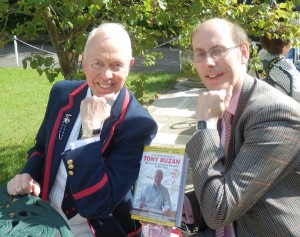 Phil Chambers with Tony Buzan * How competitors like Ben Pridmore have changed the Major Method so that it can compress three digits and are working now even on four digits to increase the amount of information that can be memorized. * Why the only real limit to card memorization is how quickly you can move your hands and how this memory skill will move beyond the matter of physical dexterity using technology to increase the speed of card retention and recall in what is now being called an “extreme sport.” * A range of techniques that people who feel non-visual can use to increase their ability to use memory techniques grounded in associative-imagery. * Why Dominic O’Brien‘s habit of daydreaming provided the source of him becoming a World Memory Champion eight-times over. * A quote from Leonardo Da Vinci that will deeply improve your imagination within seconds. * Why even in our age of technology, we can still benefit from having improved memory skills. * Why the human brain scores way greater in the creativity department than what a computer will likely ever achieve. * The two major mistakes that would-be memorizers make that causes them frustration to the point of giving up – and exactly how to overcome both of them. * How to overcome any difficulties with memory techniques by starting with those strategies that give you an instant ability to memorize material without hassle (you’ll learn exactly what these are). * Why someone with a “bad memory” who uses memory techniques will still have a better memory than even someone who seems to have been born with superior memory skills. * … and much, much more! Further Resources: UK Memory Trainings by Phil Chambers in 2014 Books by Phil Chambers on Amazon.com Books by Phil Chambers on Amazon.co.uk World Memory Championships Website Phil Chambers moderating the 2013 Algerian Memory Championships on YouTube Anthony Metivier is the founder of the Magnetic Memory Method, a systematic, 21st Century approach to memorizing foreign language vocabulary, dreams, names, music, poetry and much more in ways that are easy, elegant, effective and fun. The post Phil Chambers Talks About The Outer Limits Of Memory Skills appeared first on Magnetic Memory Method - How to Memorize With A Memory Palace.
Direct download: Phil_Chambers_Talks_About_The_Outer_Limits_of_Memory_Skills.mp3
Category:Memory Method Tips -- posted at: 8:43am EDT |
Fri, 6 June 2014
In this episode of the Magnetic Memory Method Podcast, you’ll learn about using a Memory Palace even while suffering the crushing side effects of medication. Program Notes: Following from Magnetic Memory blog posts like The Dyslexic Memorizer Who Aced All His Exams and Memory Palaces vs. Alzheimer’s, another question about using mnemonics, Memory Palaces and other memory techniques to help overcome mental “problems.” In this case, it’s the negative effects of taking medication on memory has come in. Have you worked with anyone who was working against medications and/or an illness that randomly scatters chunks of memory? I’m on an anti-seizure med for some fairly extensive nerve damage, and since I’ve been on it, my already compromised memory is suddenly like trying to catch butterflies with a hula hoop. Now I’m wondering if I’m just a hopeless case. Thanks for any advice/thoughts! I don’t want to prattle on about myself, but I am one such person. In fact, my whole adventure into memory, something I’ve only recently started talking about, came from the devastating cognitive effects of lithium, which I was taking at the time to control Bipolar Disorder. Now I take something else that has less extreme effects, but back then, there seemed to be no alternative … Until I found mnemonics. In truth, I have only anecdotal evidence that mnemonics helps bring clarity into the mind, and I was also discovering a whole lot of other things at the same time, so the clarity that came into my mind through the use of Memory Palaces was assisted by things such as self-hypnosis, meditation and a better diet combined with fitness, improved sleep, writing down my dreams each and every morning, and spending some time writing down my goals and things that I’m grateful for on a daily basis. I learned a lot of these “hacks” from Richard Wiseman’s 59 Seconds, as well as from taking hypnotherapy certification which was part of my doctoral research into friendship (sounds like a stretch, but it turns out that we do hypnotize each other in a certain way as we become friends). But in terms of Memory Palaces strictly speaking, one of the biggest things that being able to command my memory brought was confidence. The stress and negativity that surrounded me as I worked to read some of the strangest and most obscure books of philosophy and cultural studies almost caused me to drop out of graduate school. And that’s not counting the fogginess and poor concentration that made it very difficult for me to read in the first place. And in truth, I still experience all of these things today. The difference is that Memory Palaces cut through all of it, provided that I use them and use them in the right way. For me, the right way is the Magnetic Memory Method and it applies to just about everything I – or you – could ever want to learn. Of course, as I teach it, the MMM is a “method” and not a “system,” which enables users to adapt the basic principles to their own learning style. Most people don’t need to change much, but the whole purpose of how I designed it for myself was to make what really is impossible for a person with my frenzied brain possible. These techniques are an almost fool proof means of getting things into my mind so that I can find them whenever I want. Think of it like this: The Magnetic Memory Method is like a wheelchair and a ramp. Without the ramp, the chair cannot be wheeled up to the next level. Without the wheelchair, the person cannot be moved anywhere. Put them together, however, and there’s no level that cannot be reached. The Magnetic Memory Method is a structured means by which both the chair and the ramp can be built in stages in order to bring the material in the chair to wherever in the mind you want it to go. But it’s not about wheelchairs and ramps … It’s about Memory Palaces. Mental constructs based on familiar places. That’s the key: familiar places. When you get more advanced, you can use less familiar places from deep in memory and even invented Memory Palaces or Memory Palaces based on video games, TV shows, etc. Thus, instead of trying to catch butterflies with a hula hoop, see if you can’t just catch one Memory Palace in your mind. Start with your own house. Using the Magnetic Memory Method principles of not trapping yourself and not crossing your own path, create a linear journey through the Memory Palace. Then, spend some time just traveling that journey. Make it really vivid in your imagination. If you can’t actually see it in your mind’s eye … Stop trying. Feel it instead. Feel it as a structure, a series of squares that are connected. You can also feel the journey in terms of time. How long would it take you to move from the bedroom to the kitchen? Approximately how many steps? When done with eyes closed, even a non-visual person can begin to attribute visual elements to this inner sense. Because the journey is known in real life and has now been recreated in the mind, you can move on to the next step. Assuming that you’ve got ten stations along your Memory Palace journey and assuming that you’ve got ten Spanish words lined up, then you’re ready to work on memorizing the first Spanish word by placing it at the first location. All of this is premised upon the absolute certainty that you know where to find that word later when you’re looking for it as part of your Magnetic Memory Method Recall Rehearsal procedures. Of course, there are ways that you can read about in the book that help you make sure that you’re picking the best possible words, and you can experiment with all of these. The most important thing is to get started. John Cage once said, “begin anywhere,” and that remains true. But if you’re struggling to find a place to start, start by embedding your home in your mind and try to always focus on what is possible. That is in fact the number one lesson I have ever learned. I used to focus so much on what was impossible that I hypnotized myself into taking zero action. But through all kinds of mysterious and interesting and strange circumstances, I learned to focus only on the possible, something I have to relearn all the time. Miraculously, when I use Memory Palaces in the right way, they never fail me. And barring some terrible brain trauma – and even then (if you’ve heard my Podcast interview with Michael Gusman then you’ll know why I’m making this exception), I don’t think Memory Palaces that are correctly built can ever fail. I sum, if I can make the following suggestions that I think will help you deal with the effects of your medication, based on the understanding that I’m not a doctor (at least not the medical kind, just a dude with a PhD), work on Memory Palaces as described by the Magnetic Memory Method, but also: * Meditation Do this writing by hand so that you train your brain to connect your gratitude and wishes with movements of the hand, with mechanical acts of doing that are not integrated with computers. The research Richard Wiseman presents in 59 Seconds shows you why this is important, but it also just makes sense when you think of the difference between blunt force writing via typing and the elegance of handwriting … Or the lack of it, which reminds me that if you ever get bored of writing down the same thing every day, try writing with your non-dominant hand instead. It took me only a short time to develop this skill and it has really happy effects. I guess it lights up different centers of the brain. I don’t know if writing with your non-dominant hand will do that for you, but if you’re going to pick up these habits, then you might as well give writing with your non-dominant hand a try too. It cannot hurt. I hope these thoughts help. Let me know if you have any questions or if there is anything further I can do for you. Anthony Metivier is the founder of the Magnetic Memory Method, a systematic, 21st Century approach to memorizing foreign language vocabulary, dreams, names, music, poetry and much more in ways that are easy, elegant, effective and fun. The post Can A Memory Palace Overcome Medicinal Side-Effects? appeared first on Magnetic Memory Method - How to Memorize With A Memory Palace.
Direct download: On_Medication_And_Memory_Skills_Magnetic_Memory_Method_Podcast.mp3
Category:Memory Method Tips -- posted at: 1:39pm EDT |
Sat, 31 May 2014
Let’s face it… We’ve all suffered from nightmares. Sometimes they come out of nowhere, sometimes they’re deeply connected with a rough passage through life. And yet… Since first starting with dream recall, I’ve never had what I’d call a “nightmare.” My childhood was littered with them, however. I think these terrible nocturnal experiences were tied to all the surgeries I needed thanks to a ruptured eardrum. As a result of this problem, I needed tubes. These were taken in and removed repeatedly over several years … But I’m not going to fill your ears with these tales of nighttime woe or the images they involved. I don’t even particularly want to hear descriptions of your nightmares. I’m not a dream therapist, after all. What does interest me, however, is what you’ve done to deal with your dreams when they haven’t been nice. Do you just let it go and get on with your day? Do you carry a feeling with that takes time to subside? Do you tell a loved one or friend? Ideally, if you’re practicing dream recall, you’ll write it down. It’s part of creating that nighttime portrait I was telling you about. It’s like creating a graph that lets you see spikes of activity over time. Form becomes as important as content, especially when you hit an earthquake or volcano. You can relive it in the safety of paper as you externalize and study your nighttime seismograph. And over time, with a dedicated dream recall practice, you can bring balance to your nighttime life. The other thing I would suggest to speed up the process of healing nightmares is to place your disturbing dreams in Memory Palaces. Yes, I know that Memory Palaces are precious things. You almost don’t want to get them involved. But the fact of the matter is that Memory Palaces can serve as neutral territory. Just as we use Memory Palaces to enliven the material we want to remember using vibrant color and intensified action, we can drain our negative dreams of the intensity that terrifies us by placing those fears in a familiar location we’ve reconstructed in our minds. Try it sometime. When you wake up from an unsettling dream, place as many details as you can remember into one of your Memory Palaces. Or write them down as you would normally to get the fullest possible recording of the dream on paper and then transport the dream into a Memory Palace. (If you’re new to Magnetic Memory Dream Recall, then writing them down first before doing Memory Palace work is probably the better option). Either way, once you’re in the Memory Palace with the dream, or looking at it from whatever way that you look at dreams you’ve placed there, before you do anything else, drain the dream of colour until it’s black and white. You may even want to make it like an old scratchy movie, which will allow you to eliminate and reduce the sound. This is another powerful strategy for neutralizing a nightmare. For especially bad dreams, you can speed them up and add sound, as in a comedic movie where everything speeds up and everybody sounds like Mickey Mouse. Make it so that you have no choice but to laugh at the dream. To that younger version of myself, who from the ages four to ten had intense nightmare that caused so much disturbance throughout the day that it could not help but to invite new nightmares the next night, I would advise myself to eliminate the color from the dream and then using the powerful safety of a Memory Palace, wrap it up like newspaper and throw it out the door like Sigourney Weaver ejected the monster in Alien out into space. I ain’t saying that this will be easy. It could take some deliberate practice with dream recall. And definitely some familiarity with Memory Palaces. But if you’re interested, and for some reason not already on board the Magnetic Dream Recall nightmare-healing journey (potentially, depending on your sincerity of effort), the train departs from here: The post Can A Memory Palace Heal Nightmares? appeared first on Magnetic Memory Method - How to Memorize With A Memory Palace.
Direct download: Can_a_Memory_Palace_Heal_Nightmares_Magnetic_Memory_Method_Podcast.mp3
Category:Memory Method Tips -- posted at: 1:31pm EDT |
Mon, 26 May 2014
Tune in now and you’ll learn: * The best ways to use index cards to create a “skeleton” that you can use again and again for other writings or to memorize material for a public presentation. * Why index cards are better than Evernote and Anki. * How to make writing a dissertation as interesting as writing a screenplay for television or the movies. * How to use the floor of your apartment to organize an entire dissertation into multiple chapters so that you can present the evidence in the best possible order simply by sitting and writing. * The best conditions to create and maintain a writing space for composing your writing. * The need for syncing to Dropbox or some similar service while you’re writing. * How to avoid the need to re-read your dissertation before the defense. * How to know almost exactly where in your dissertation you’ve made various points. * The best way to keep your research material “mobile.” * How to apply the techniques in this podcast and “How to Memorize a Textbook” to memorize and write blog posts about gardening, cooking or whatever area of interest you might want to write or present about. * … and much, much more. I also invite you to an upcoming webinar titled Memory Secrets of an A+ Student, which I highly encourage you to sign-up for and attend. I’ll be talking more about using memory techniques as part of scholastic success with an eye to making sure that the techniques can also be used by everyone. As a student, as you may know, I was pretty foggy in my mind most of the time for various reasons I’ve talked about before. Memory skills and the index card research technique that I talk about in the podcast were key to my success and although paper and pen seem like ancient technology to students today, I still highly recommend using them. Handwriting uses, rather obviously, the hand, and there are good, scientifically grounded reasons that explain why that handwriting creates higher levels of cognition. Couple this with a Memory Palace, location-based memory technique and you’ll quickly experience much larger results than typing. It’s not entirely clear to me why typing differs from handwriting, but the effects are plain and the practical benefits evident. As I talk about in this episode, it’s easy to lose or accidentally delete a computer file, but so long as you have an ordered stack of index cards, you know the order of points you talked about in the writing and can re-write it relatively easily. You may even be able to dictate directly from the index cards, which is a point that I neglected to address in the podcast itself. If you have dictation software and are able to verbally respond to index cards off-the-cuff, then the writing processes can go even more quickly for you, making your job simply one of editing. If you’ve enjoyed this episode of the Magnetic Memory Method Podcast, please add a comment here, subscribe on iTunes or Stitcher and feel free to share it with anyone you know who is currently writing a dissertation or writing in general. Talk soon! Sincerely,
Anthony Metivier is the founder of the Magnetic Memory Method, a systematic, 21st Century approach to memorizing foreign language vocabulary, dreams, names, music, poetry and much more in ways that are easy, elegant, effective and fun. The post How To Write A Dissertation (Or Essay) appeared first on Magnetic Memory Method - How to Memorize With A Memory Palace.
Direct download: How_to_Write_a_Dissertation_Magnetic_Memory_Method_Podcast.mp3
Category:Memory Method Tips -- posted at: 7:12pm EDT |
Fri, 16 May 2014
* The important connection between space in your Memory Palaces and where you use your Memory Palaces. * The amazing value of having a solid routine so that you can see the compound effect of the work you’re putting into your memory (developing your memory is more like play than “work”, so don’t let that nasty word put you off!) * Why you need to start simple each and every time you memorize something so that you can sail into the more complicated matters with ease (this one tip alone is worth at least a million Magnetic dollars). * How to leverage the power of mistakes and turn them into the most powerful memorizing experiences you could ever wish for. * When to ditch parts of your Memory Palace so that you can memorize even more material and not get stuck in a ditch. * The most important rule in the world for getting past the whining and crying of frustration so that you are always calm and relaxed when working on memorizing material. * The productivity secrets of specialization and why you need one. * How to train your brain using rewards (I used to think this was corny too until I finally gave it a try … it works!) * … and a whole lot more! Listen to this episode of the Magnetic Memory Method Podcast and be amazed by what you can achieve using the natural abilities of your mind. +Anthony Metivier is the founder of the Magnetic Memory Method, a systematic, 21st Century approach to memorizing foreign language vocabulary, dreams, names, music, poetry and much more in ways that are easy, elegant, effective and fun. The post Your Free Memory Improvement Master Plan appeared first on Magnetic Memory Method - How to Memorize With A Memory Palace.
Direct download: Your_Free_Memory_Improvement_Master_Plan.mp3
Category:Memory Method Tips -- posted at: 11:39am EDT |
Tue, 11 February 2014
Alicia used this book to memorize all of Shakespeare’s plays in historical order and is now exploring ways to use Memory Palace techniques to memorize other information, such as the Periodic Table of The Elements. In this interview, you’ll also hear about: * Why walking, bikes and even motorcycle rides can make a world of difference when it comes to building Memory Palace journeys. * Why Memory Palace journeys never have to be “manually” memorized. * Why Memory Palaces are essentially a “free resource” just waiting in your mind to be utilized to memorize just about anything. * The number one thing Alicia likes about using her memory. * The confidence that having an improved memory can bring – at any age. * Why memory is a catalyst to developing an interest in topics that young people might not otherwise care about. * Exactly how using a Memory Palace feels, the absolute joy and creativity of using memory techniques … * … and much, much more. Join us for this very special interview on the Magnetic Memory Method podcast and feel free to get in touch if you have an experience with Memory Palaces and memory techniques that you care to share on a future episode.
For more interviews like this, please check out Memory Improvement for Kids. You may also like to learn about how to remember more of your vacations with a Memory Palace. The post Tap The Mind Of A 10-Year Old Memory Palace Master appeared first on Magnetic Memory Method - How to Memorize With A Memory Palace.
Direct download: MMM007_Tap_the_Mind_of_a_10_Year_Old_Memory_Palace_Master.mp3
Category:Memory Method Tips -- posted at: 11:50am EDT |
Mon, 3 February 2014
In this thrilling, 45-minute interview, you’ll learn: * Why fluency is really nothing more than the capacity to assemble the pieces of a language together. * How to think of language as a net (so that you can go fishing for phrases). * The epiphany the point where the language is engrained in your brain. * Why just a couple of books is more than enough when studying a new language. * Why languages are like a group of friends. * How the simple act of smiling can deepen your language learning efforts. * What to do if you find yourself practicing your language with unpleasant people. * Why learning a language is like courting a lover. * How to balance quality and quantity when it comes to learning vocabulary. * Solid tips on using Skype for language learning. * Why establishing a “time line” is essential to language learning. * How you can learn up to 40 sentences in just one hour. * How involving your emotions enhances your learning capacity. * Why you need to avoid criticism and negative feedback when learning a language. * How to used spaced-time repetition the right way. * Luca’s personal experiences with the journey method and the method of loci. * What Luca learned about mnemonics while studying to be an interpreter. * How to develop your natural capacity for associating new vocabulary with places and feelings. * How to vary your activities to maximize your learning curve. * Why you should think in terms of structures and phrases instead of words. * The difference between a beginner and an intermediate language learner. * The number one principle behind all language learning. * … and much, much more. Luca’s methods are groundbreaking, riveting and fun. Every day you’re not putting his wisdom to work and studying a foreign language, you’re leaving part of life’s pleasure behind. The post Luca Lampariello Talks About Language As A Net appeared first on Magnetic Memory Method - How to Memorize With A Memory Palace.
Direct download: Magnetic_Memory_Method_Interview_With_Luca_Lampariello.mp3
Category:Memory Method Tips -- posted at: 1:17pm EDT |
Wed, 15 January 2014
You’ll also hear some fun and interesting mnemonic examples featuring nuns, pyramids and Pythagoras’s abs! After listening, enter discount code “math” for a Magnetically Mathematical discount on your investment in either How to Learn and Memorize the Vocabulary of Any Language. Anthony Metivier is the founder of the Magnetic Memory Method, a systematic, 21st Century approach to memorizing foreign language vocabulary in a way that is easy, elegant, effective and fun. The post MMMPodcast Episode 003: Memorizing Mathematical Formulas appeared first on Magnetic Memory Method - How to Memorize With A Memory Palace. |
Thu, 9 January 2014
After listening, enter discount code “podcast” for a 50% discount on your investment in either How to Learn and Memorize the Vocabulary of Any Language or How to Memorize Names and Faces. Anthony Metivier is the founder of the Magnetic Memory Method, a systematic, 21st Century approach to memorizing foreign language vocabulary in a way that is easy, elegant, effective and fun. The post MMMPodcast Episode 002: Memorizing Drill Using Plain, Old-Fashioned Dice appeared first on Magnetic Memory Method - How to Memorize With A Memory Palace. |
Sun, 5 January 2014
Dear Memorizers, I started working on Greek and guess where I began? But I went a little hog wild this time, creating both an audio and video version. You can download the Mp3 above or watch as we wind our way through my Memory Palace and the mnemonic imagery I used to memorize each letter of the Greek alphabet. And yes, coupon code “greek” might just still be up for grabs when you want to get started on memorizing vocabulary after mastering the alphabet. This online language learning course will show you how. Until next time, dear Memorizers, help someone else learn about Memory Palaces and mnemonics. Teaching is one of the best ways to really solidify the methods for yourself and to make the world a better place all in the same stroke. The more we can memorize, the more we can learn. And the more we can learn, the more we can memorize. It’s a perfect circle, so step inside and let’s widen it together. The post The Greek Alphabet Is Easy To Memorize (Audio and Video) appeared first on Magnetic Memory Method - How to Memorize With A Memory Palace.
Direct download: Greek_Alphabet_Easy_to_Memorize.mp3
Category:Memory Method Tips -- posted at: 2:58pm EDT |
The Magnetic Memory Method Podcast (Memory Method Tips)

Categories
generalMemory Improvement Tools
Memory Method Tips
Brain Exercises for Memory Improvement
Memory Improvement Case Studies
Podcast
Guest Post
Memory Palace Tactics
Practical Memory Techniques
Uncategorized
Improve Memory Q&A
Archives
AprilMarch
February
January
December
November
October
September
August
July
June
May
April
March
February
January
December
November
October
September
August
July
June
May
April
March
February
January
December
November
October
September
August
July
June
May
April
March
February
January
December
November
October
September
August
July
June
May
April
March
February
January
December
November
October
September
August
June
May
April
March
February
January
December
November
October
September
August
July
June
May
April
March
February
January
December
November
October
September
August
July
June
May
April
March
February
January
December
November
October
September
August
July
June
May
April
March
February
January
December
November
October
September
August
July
June
May
April
March
February
January
December
November
October
September
August
July
June
May
April
March
February
January
December
November
September
| S | M | T | W | T | F | S |
|---|---|---|---|---|---|---|
| 1 | 2 | 3 | 4 | 5 | 6 | |
| 7 | 8 | 9 | 10 | 11 | 12 | 13 |
| 14 | 15 | 16 | 17 | 18 | 19 | 20 |
| 21 | 22 | 23 | 24 | 25 | 26 | 27 |
| 28 | 29 | 30 | ||||
Syndication

 Have you ever wondered about apps like Cogmed for brain exercise and memory improvement really work?
Have you ever wondered about apps like Cogmed for brain exercise and memory improvement really work? Looking for ways to learn anything fast and remember it in 2018 (whatever it may be)?
Looking for ways to learn anything fast and remember it in 2018 (whatever it may be)?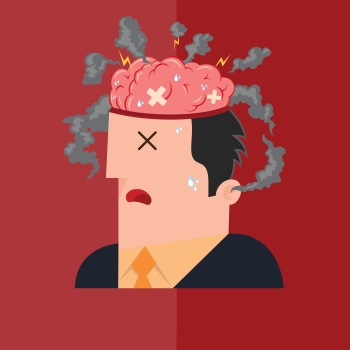





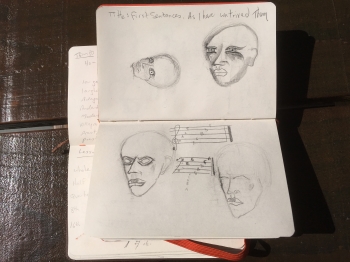








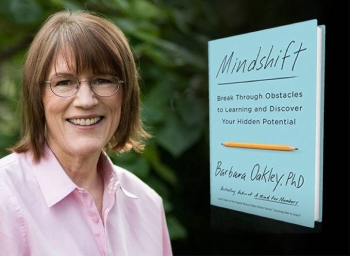


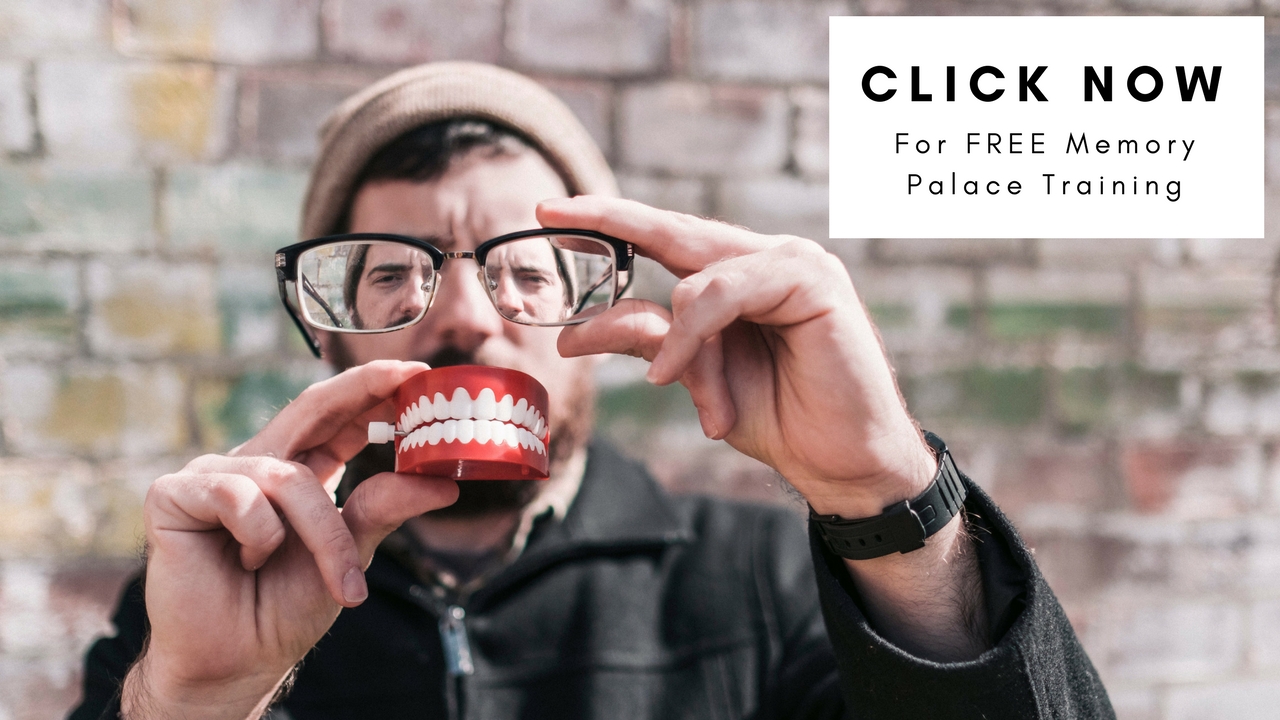
 I’m a pretty calm and relaxed guy.
I’m a pretty calm and relaxed guy.
 Don’t you hate that sinking feeling?
Don’t you hate that sinking feeling? Ever feel frustrated by people with strong memory abilities?
Ever feel frustrated by people with strong memory abilities?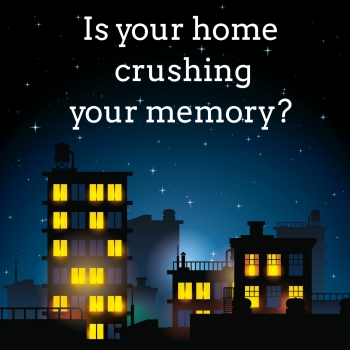 Home is where the heart is, right?
Home is where the heart is, right?

 Wish you could remember names? I know I’ve often wished that memorizing names was easier (it is). After all …
Wish you could remember names? I know I’ve often wished that memorizing names was easier (it is). After all …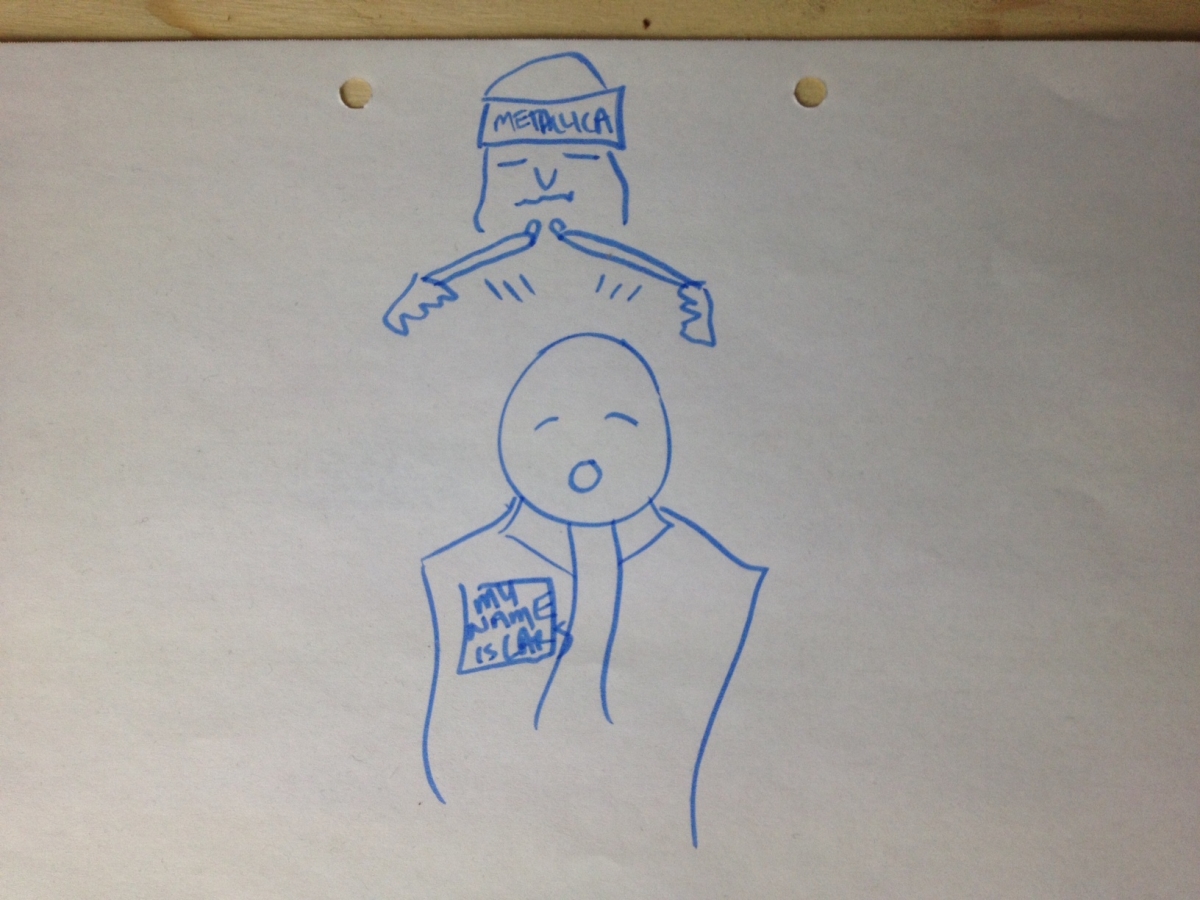
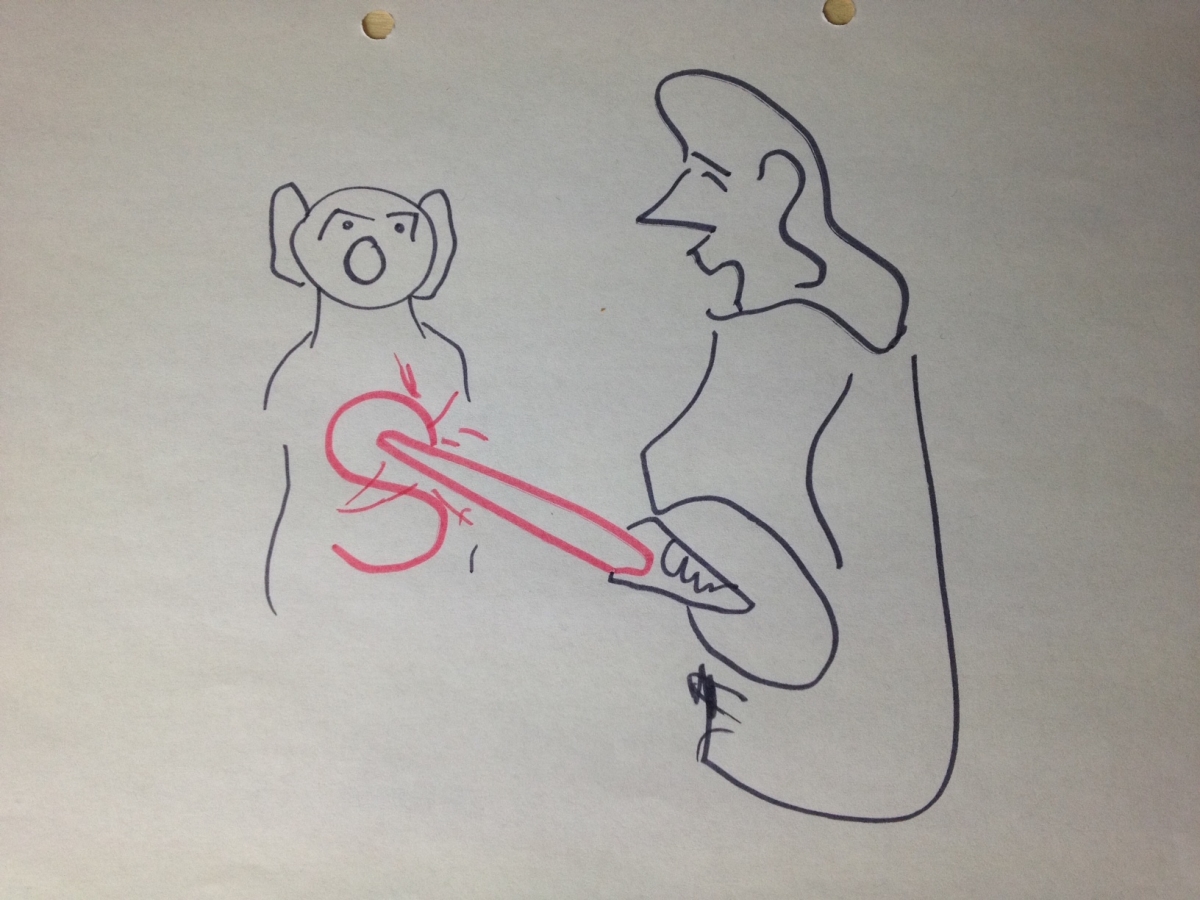
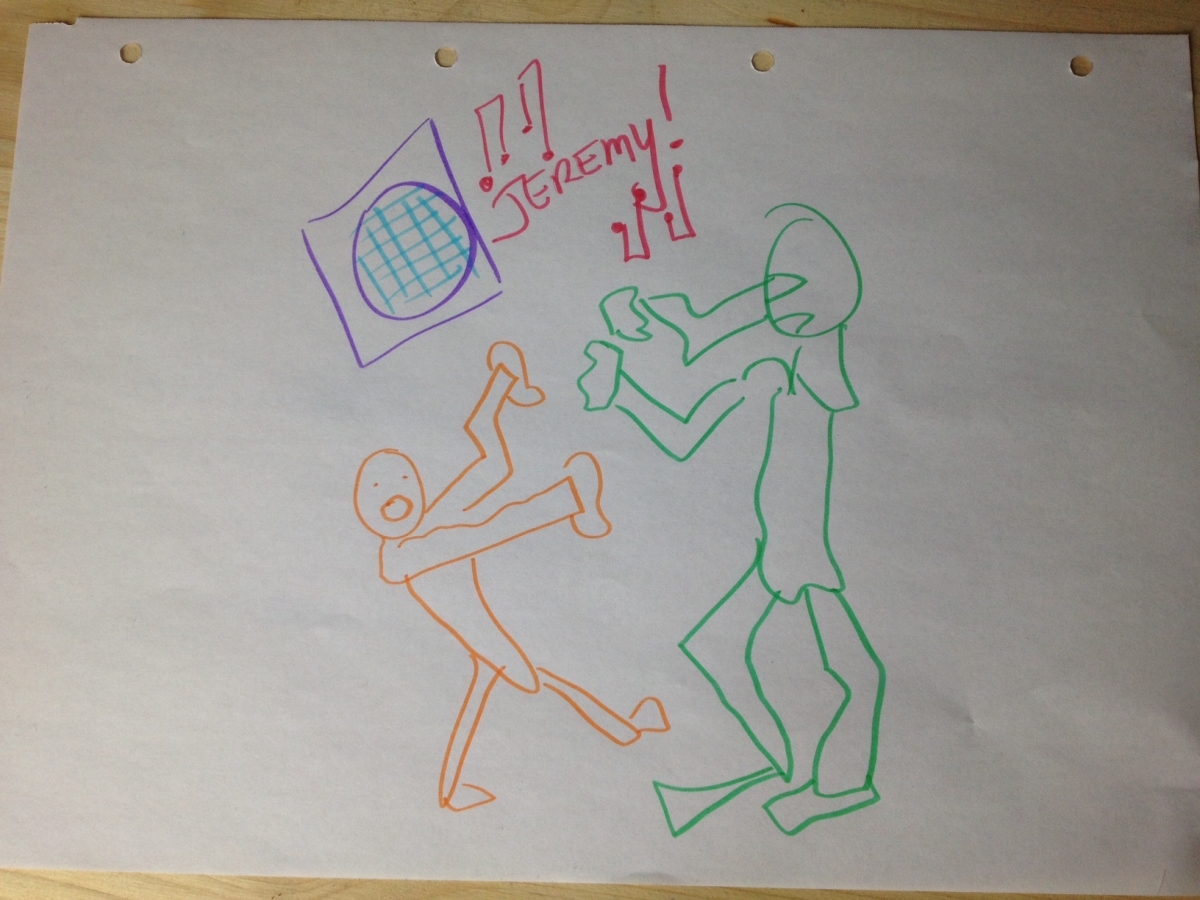
 You want your children to remember what they learn, right? You’ve probably even hoped that they’d learn enough to succeed in life.
You want your children to remember what they learn, right? You’ve probably even hoped that they’d learn enough to succeed in life.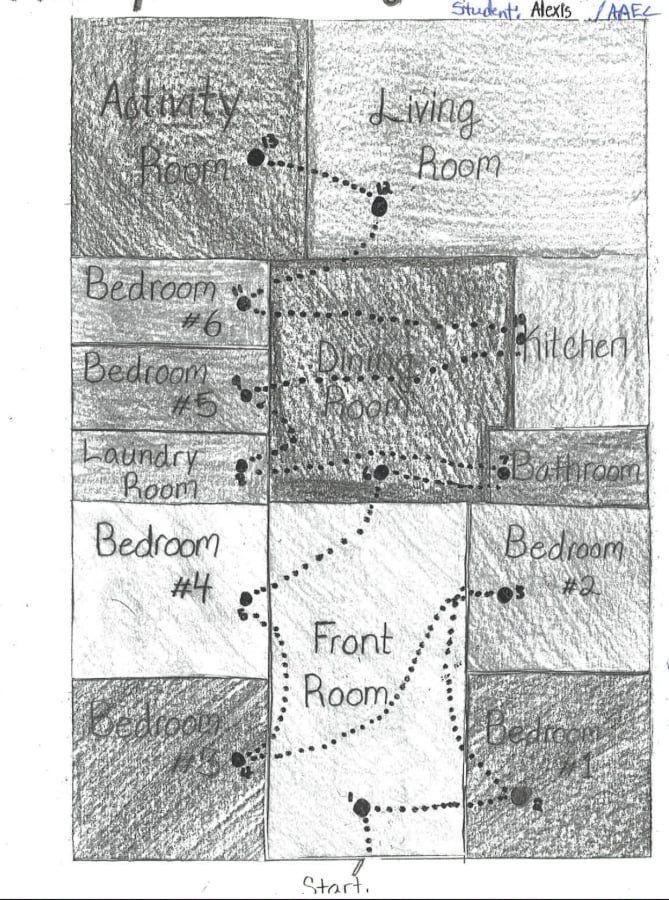
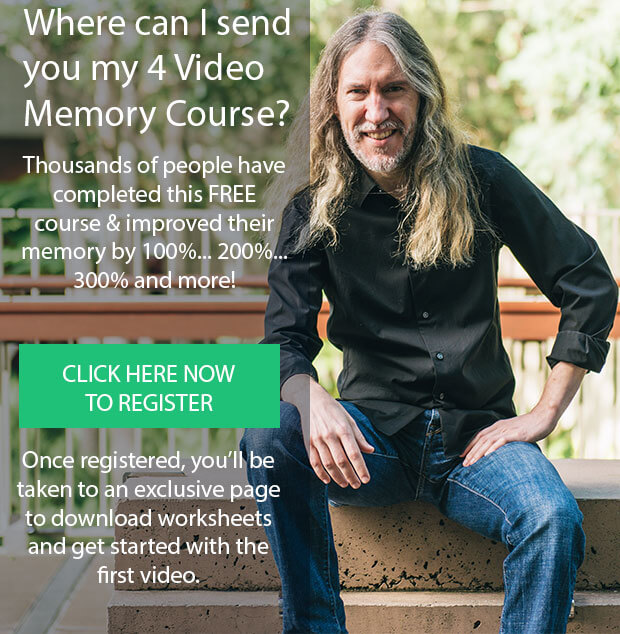


 In this episode of the Magnetic Memory Method Podcast,
In this episode of the Magnetic Memory Method Podcast, 
 In this episode of the Magnetic Memory Method, we have a special interview with Phil Chambers. Phil is a World Mind Mapping Champion who works closely with the World Memory Championships as a scorer and statistician who does not believe that memory competitors have even come close to
In this episode of the Magnetic Memory Method, we have a special interview with Phil Chambers. Phil is a World Mind Mapping Champion who works closely with the World Memory Championships as a scorer and statistician who does not believe that memory competitors have even come close to 
 Dear Memorizers,
Dear Memorizers,

 In this episode of the Magnetic Memory Method Podcast, I follow up on the “
In this episode of the Magnetic Memory Method Podcast, I follow up on the “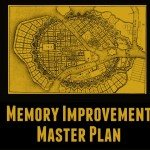 In this episode of the Magnetic Memory Method Podcast, you’ll learn 8 simple and effective strategies that you can apply to your dedicated memorization efforts when you using mnemonics to study, memorize poetry, foreign language vocabulary or even a deck of cards. Listen now to learn:
In this episode of the Magnetic Memory Method Podcast, you’ll learn 8 simple and effective strategies that you can apply to your dedicated memorization efforts when you using mnemonics to study, memorize poetry, foreign language vocabulary or even a deck of cards. Listen now to learn: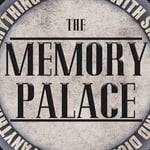 In this episode of the Magnetic Memory Method Podcast, Alicia and her father John Crosby join us to talk about Lewis Smile’s
In this episode of the Magnetic Memory Method Podcast, Alicia and her father John Crosby join us to talk about Lewis Smile’s  In this episode of the Magnetic Memory Method Podcast, you’ll hear from language learning expert, Luca Lampariello.
In this episode of the Magnetic Memory Method Podcast, you’ll hear from language learning expert, Luca Lampariello. In today’s episode of the Magnetic Memory Method Podcast, we’re going to learn how to use a Memory Palace to store mnemonic associative imagery that will enable us to recall any mathematical term of formula we could possible desire.
In today’s episode of the Magnetic Memory Method Podcast, we’re going to learn how to use a Memory Palace to store mnemonic associative imagery that will enable us to recall any mathematical term of formula we could possible desire.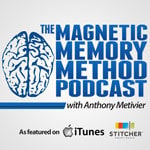 In this session of the Magnetic Memory Method Podcast, I talk about a cool dice game you can use to put a little variety into you language learning efforts.
In this session of the Magnetic Memory Method Podcast, I talk about a cool dice game you can use to put a little variety into you language learning efforts.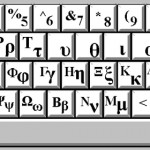 That’s right. With the old fashioned Alpha and Omega.
That’s right. With the old fashioned Alpha and Omega.
This is an interesting question, Denver.
I could only offer anecdotal evidence, which is that, yes, practicing memory techniques can improve your overall recall.
A caveat, however. The accuracy of that recall may not be adequate even if your Memory Palace work and work with other memory techniques and mnemonics is involved. Thus, I would exercise caution if and when claiming this material is the truth. I suspect that most writers and audiences realize this anyway, but it’s an important point to keep in mind.
Something related that comes to mind just for fun:
Carl Jung used the word “cryptomnesia” to describe writing things and not realizing that you’re “copying” something you’ve read before. He accused Nietzsche of being a plagiarist, for example, but a plagiarist suffering from this condition (through somehow I don’t think Jung’s diagnosis means that Jung forgave him).
The problem with this accusation is that it would lead people to believe that the creators of The Matrix had read the 7th book of Plato’s Republic (the “Allegory of the Cave”).
This is quite likely, but it’s not necessary that they did. What matters is that there is a core, universal story that has reverberated throughout history. What is being “remembered” or recreated is the echo of the narrative undertow and its deep structures. You don’t need to have come across something before in order to “fall prey” to reconstructing it.
This doesn’t, by the way, relate to the idea that a thousands monkeys with typewriters would eventually come up with all of Shakespeare. As far as I know, they don’t perceive culture, so that randomness could never attain to such meaning. Not only that, but what counts as “Shakespeare” has always been and will always be in question as new scholarship discovers new things and we continue to contend with the fragments of writing that were left behind and mostly unsigned by whoever wrote them.
Back to writing the “truth” of one’s past, another psychologist, Jacques Lacan, said that “there are too many words” to accurately reflect the truth of a situation after the fact.
Try it out some time.
I’m about to go to the grocery store and I can guarantee you in advance that so many things are going to happen, so many shapes and colors are going to be seen and so many people encountered, all of which will contain conscious and subconscious thoughts …
There will be too many words available in English and every other language to ever describe it except by eliminating, or rather focusing possibility towards the construction of a possible rendition of what happened.
Put another way, there aren’t words enough. You could fill twelve telephone books trying to describe what will take place on that simple journey and never make an accurate description. You’d have to be me taking that short trip, and even I won’t absorb even a tenth of it.
Thus, I would suggest that it’s not what one can remember that is important when writing about the past. It’s the impressions that you shape from what you do remember that count. And the words you use to choose them will always come from a pool of too much to create too little based on the pounding of stimuli from what Freud called the “oceanic.”
There you have it. Three psychoanalysts in one answer. How’s that for fearful symmetry?
Further Resources and Nifty Things That Only An Internet Can Provide: Freud on the Oceanic in Civilization and its Discontents (probably better translated as “its discomfort”)